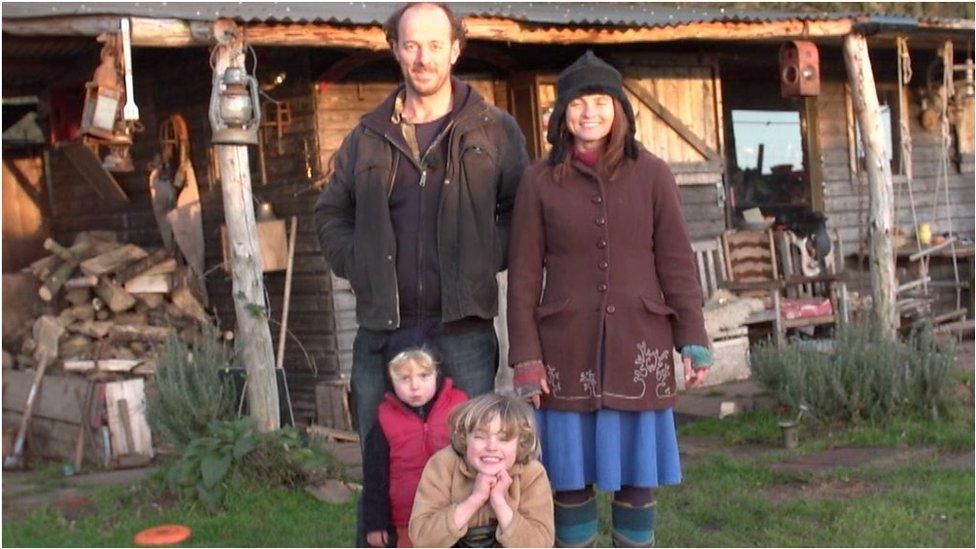Upper Coquetdale: Off-grid community's hopes for mains power
- Published
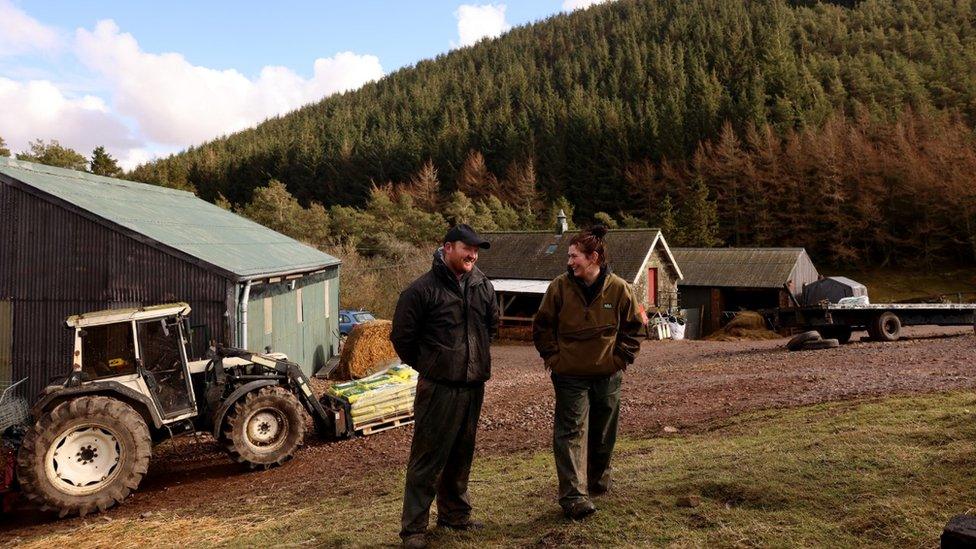
Mark and Laura Day, originally from Norfolk, now run a farm in Alwinton
A rural Northumberland community could be connected to mains electricity for the first time, if plans are agreed.
Some 50 families live off-grid in Upper Coquetdale, near Rothbury, where their homes are powered by costly diesel generators.
Northern Powergrid has lodged plans with the national park authority, external to bring mains power to the area, and connect three emergency phone masts.
An application will be submitted to the energy secretary for a final decision.
If the national park agrees, overhead lines would be installed which would connect to underground cables, so as not to ruin the natural beauty of the valley.
The request to secure mains electricity supply to three emergency phone masts was made by the Home Office, while the Ministry of Defence requested mains electricity connections to its off-grid tenanted farms.
'Engineer two hours away'
Mark and Laura Day relocated from Norfolk in 2018 with their two children, to fulfil Mr Day's dream of being a hill farmer. They now have 700 sheep.
"You just have to learn that putting the washing machine and the dryer on at the same time will turn the generator off," said Mrs Day.
"You can't have the whole kitchen on at once.
"If something goes wrong, the nearest engineer for the generator is two hours away."
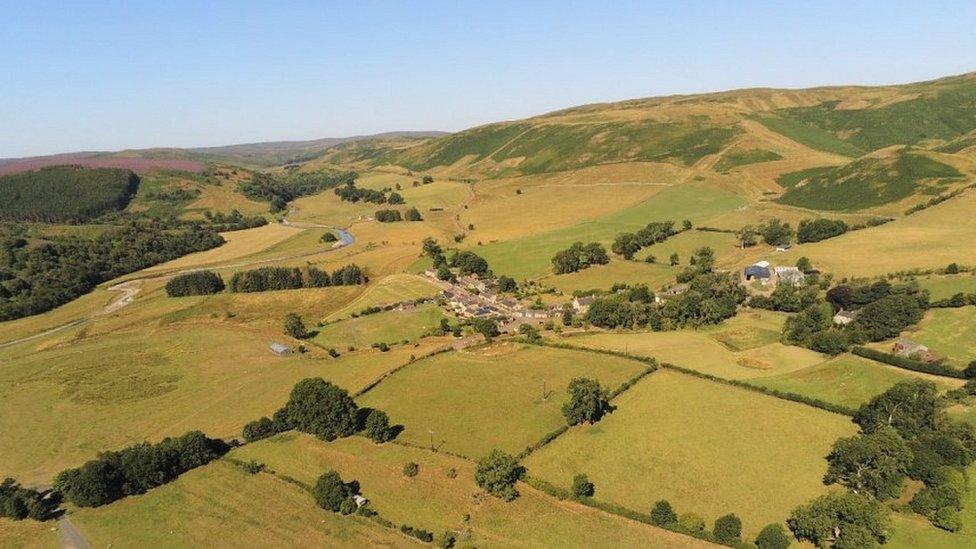
Upper Coquetdale in the Northumberland National Park is surrounded by sprawling hillside
Her husband, who comes from a farming background, added that the family use satellite broadband which is "more expensive" with slower speeds.
"It's 2023 and we're on generators," he said.
"There's remote parts of Scotland that have electricity."
Steven Bridgett, independent councillor for Rothbury on the Conservative-led Northumberland County Council, said the area was never connected to mains power in the 1950s as it was "too expensive".
"The campaign has been going on since then," he told the Local Democracy Reporting Service.
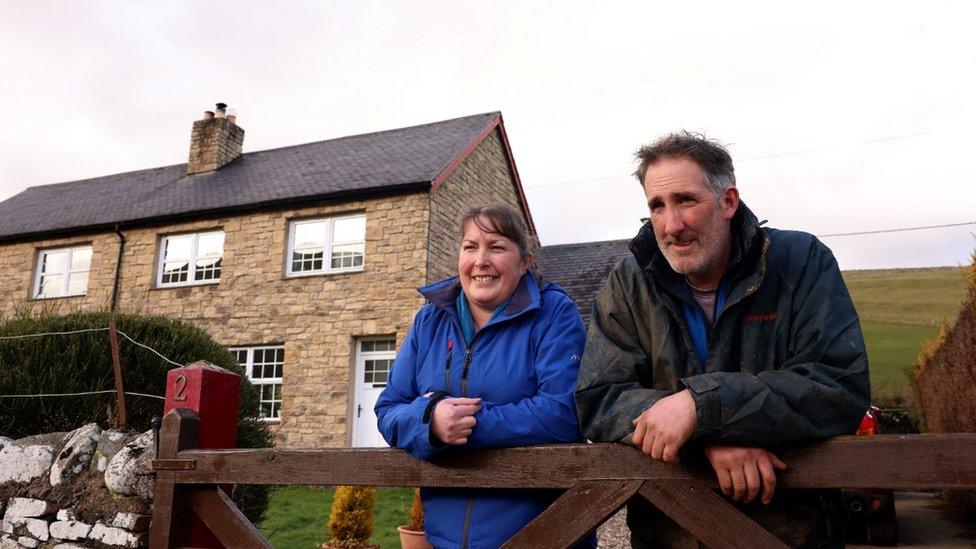
Samantha and Daniel Wood welcomed better mobile coverage to help in emergencies
Samantha Wood, who lives further down the valley at Shillmoor, is a long-standing campaigner for change.
Her husband Daniel is a third-generation shepherd.
"We're a community at the edge of civilisation," she said.
"Generators between two houses are quite common. When it's working alright you get used to it, but when there's a problem it's different. The engineer we use is in North Scotland."
The couple said they were reluctant to get too excited about the prospect of finally getting connected, due to previous false dawns.
"The mobile phone signal will be a great help," Mrs Wood added.
"Walkers get ill, and one neighbour had a really bad accident. They were trapped in the snow for six to eight hours before they were found."
Mrs Wood said it would be a "travesty" if plans were not approved.
"It will put the final nail in the coffin for communities like this," she added.
A decision on plans will be made by national park authority members on 26 April, who will then submit their formal response to the secretary of state.

Follow BBC North East & Cumbria on Twitter, external, Facebook, external and Instagram, external. Send your story ideas to northeastandcumbria@bbc.co.uk, external.
Related topics
- Published5 February 2022
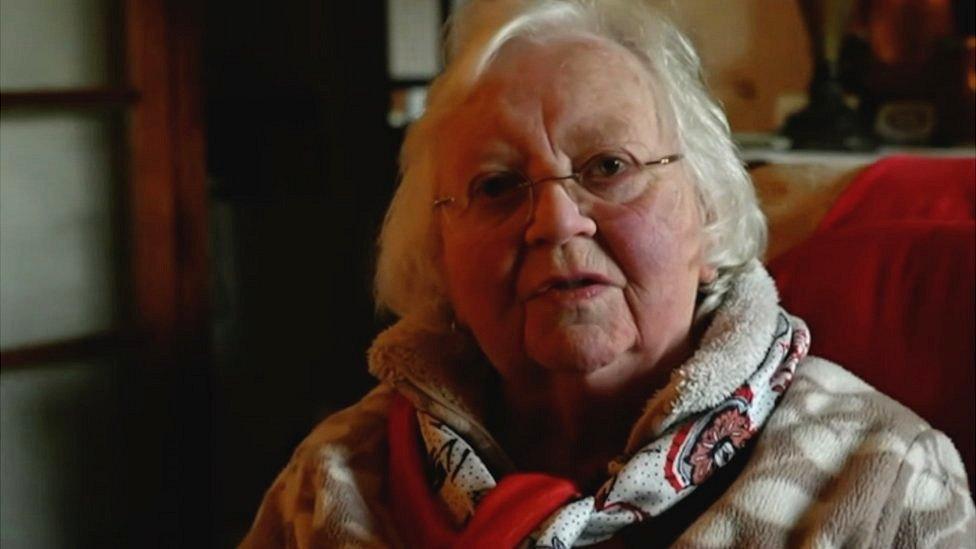
- Published16 January 2019
